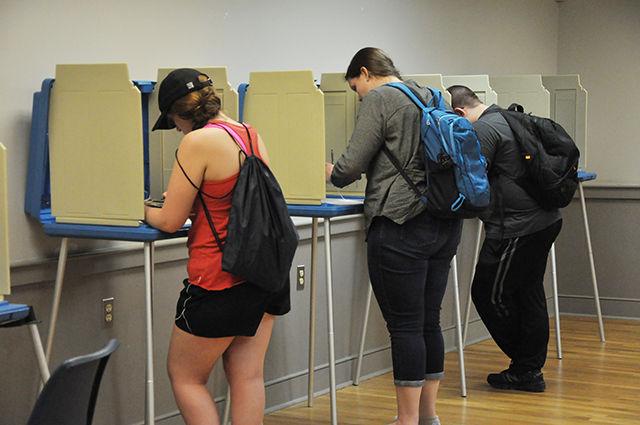The Raleigh mayoral runoff election took place Tuesday between incumbent mayor Nancy McFarlane and candidate Charles Francis, with voter turnout at the Pullen voting center reaching 346, mostly unchanged from the 368 voter turnout in early October. Mayor McFarlane took an overwhelming 251 of those votes cast.
The Pullen Community Center, located less than a mile from main campus, is the voting site for most students registered on campus.
McFarlane overwhelmingly won the Pullen voting center with 72.5 percent of the vote, while candidate Francis won 27.5 percent of the vote at the same precinct, according to Lindsey Holmes, a poll worker at the site.
This result is similar to the Wake County Municipal elections, held on Sunday Oct. 10, Mayor McFarlane won 62.9 percent of the vote at that precinct, while candidate Francis won 32.4 percent of the vote at that same precinct.
Francis announced he would apply for a runoff election on Oct. 15 during a press conference. Francis barely made the cutoff to call for a runoff election, with McFarlane missing an outright majority win by 849 votes out of the 52,868 votes cast.
Austin Champine, a fourth-year studying chemical engineering, came to vote on Tuesday at the Pullen voting center. Champine stressed why he believes it’s important for students to vote in local elections.
“It’s important to get your voice out there, get the people who are representing you to represent your interests,” Champine said. “Not enough people do it.”
According to the U.S. Census Bureau, voters aged 18 to 24 have the lowest turnout of all age ranges.
“Voter turnout for our demographic is so low, and we all tend to vote a certain way, activating that demographic in terms of voting could be powerful,” said Alex Persson, a second-year studying chemical engineering.
During the 2016 national election, 1,900 students voted at the Pullen voting center, more than five times the number of people who voted at the Pullen voting center on Tuesday.
Champine explained that for busy college students it is difficult to know when you can vote and how difficult it can be to find the time to vote.
“Not everyone knows when you can vote,” Champine said. “Tuesdays are a weird day.”
The mayoral election this year is different from years past, with incumbent Mayor McFarlane being challenged by a democratic candidate for the first time. Ruth Kintzele, a second-year studying political science, explained how she thinks this is affecting voters.
“I’ve heard that democrats are having a hard time deciding who to vote for,” Kintzele said.
The official results of the mayoral runoff election are expected to be announced by the Wake County Board of Elections within the coming days. To learn more about voting in Wake County you can go to the Wake County Board of Elections’ website.








